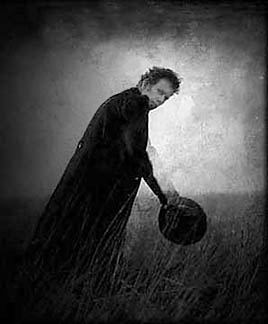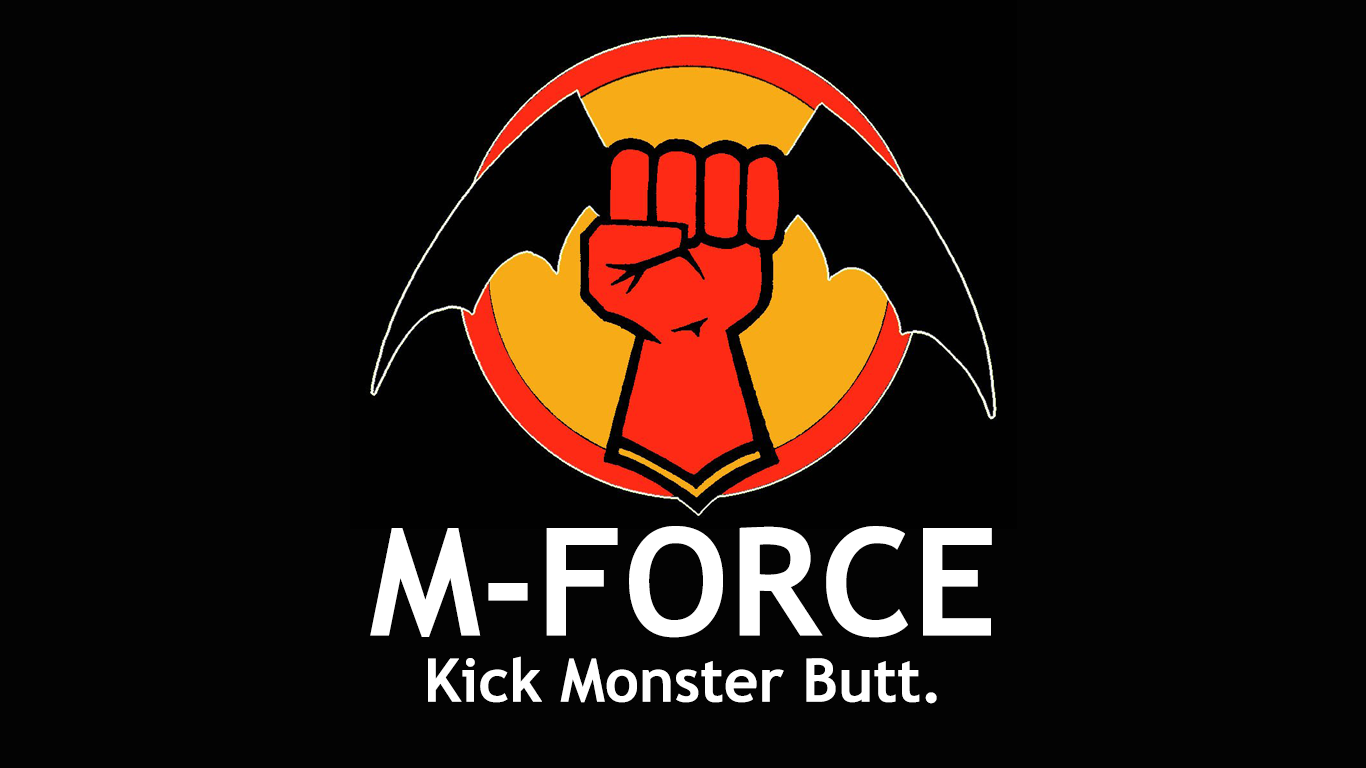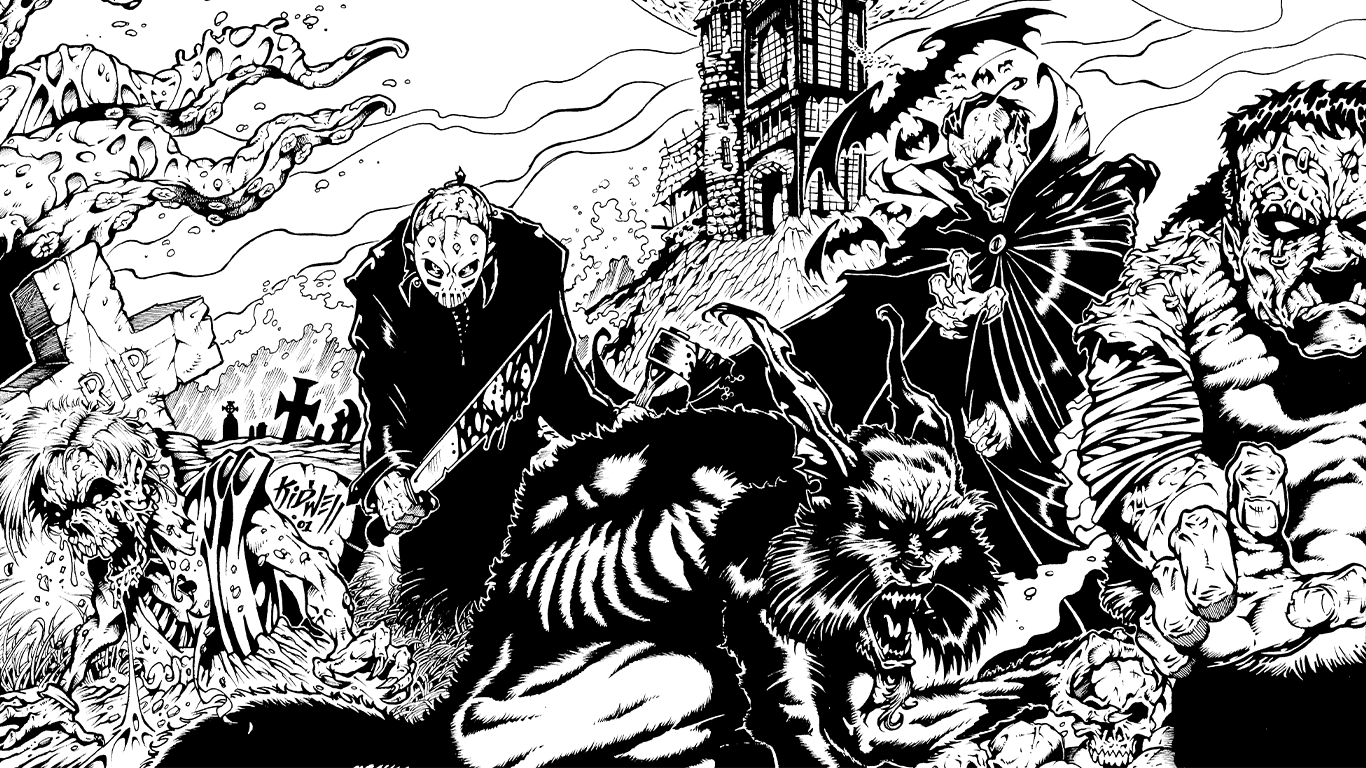We may earn money or products from the companies mentioned in this post.
Also Known As: The crossroads demon of folklore is usually represented as a unique entity– usually The Devil or an African/Voodoo deity like Legba, Ellugua, Elegbara, Eshu, Nbumba, Nzila, or Pomba Gira–and no doubt some crossroads demons claim to be these entities if they believe they can get away with the ruse. They are also sometimes referred to by names like The Rider, Li’l Ole Funny Boy, The Big Black Man, and The Stranger At The Crossroads, which may originate from names given to specific crossroads demons.
 Description: Crossroads demons are physically indistinguishable from humans.
Description: Crossroads demons are physically indistinguishable from humans.
BMA Classification: Despite the name “demon,” these creatures have not yet been classified by the Bureau of Monster Affairs because very little is known about them and they rarely directly assault humans. They should be approached with caution, but treated according to the same procedures established for humans and other non-malicious intelligent creatures.
Powers: While crossroads demons are often portrayed as wish-granters, in most stories their abilities seem more limited, usually restricted to imbuing summoners with a particular talent (traditionally gambling or musical ability) or sharing secret information (including information about things that haven’t happened yet) with the summoner.
Vulnerabilities: Crossroads demons are slightly more resistant to damage than humans and heal relatively quickly, but they are vulnerable to standard weapons. Most experts speculate that killing a demon’s earthly body merely sends it back to its home reality, but whether and how quickly the demon can return to earth is unknown.
Biology and Habitat: The crossroads demon is an extradimensional creature who uses its abilities to make deals with humans. Beyond that, very little is known about crossroads demons, though there are many tales about such creatures. Purported methods of summoning include returning to the same crossroads at a designated time nine Sundays in a row, waiting for the demon at the crossroads at midnight, and numerous more involved rituals that include planting forks in the ground, burying personal effects, and animal sacrifice. The breadth of summoning rituals suggests that either a specific ritual is required for each individual demon or that the creatures are inclined to appear of their own volition regardless of the ritual being performed. The traditional “cost” of whatever gift the demon bestows upon the summoner is the beneficiary’s soul, but based on more reliable knowledge about similar creatures, it’s likely that the demon asks for something more utilitarian. Unfortunately, M-Force has only encountered one person who claimed to have made a such a deal, and he was not forthcoming with specifics.
Sightings:
- The most well-known story of a crossroads demon is that blues singer Robert Johnson sold his soul to “The Devil” at a crossroads in return for musical ability. Johnson’s death at 27 and the numerous references to The Devil and elements of the “hoodoo” magical tradition are often cited as evidence that this story is true. Others claim the story is false or that the soul-seller was actually Tommy Johnson (no relation) who, unlike Robert Johnson, made public claims about conducting such a ritual.
- Some accounts say that Stagger Lee obtained his magic hat from The Devil at a crossroads, but the fact that such gift-giving on the part of crossroads demons is rarely mentioned elsewhere (and the question of whether Lee ever actually existed) suggests that the detail in the Stagger Lee story was borrowed from more standard tales of crossroads demons.
- In 1989, a man visited the Lubbock, Texas M-Force office claiming that he had failed to keep his end of a deal with a crossroads demon and that the demon was tormenting and perhaps attempting to kill him. In the process of verifying the man’s tale, M-Forcers discovered plenty of evidence that he was either experiencing a monumental run of bad luck or being targeted by a supernatural entity. In the previous year, his home had burned down (arson was suspected), his business had been robbed and vandalized on numerous occasions (unusual for a florist shop in an upscale part of town), and his wife had left him after suspecting he was having an affair (both he and the alleged mistress denied any wrongdoing). M-Force began looking into the case, but gave up after several months with no good leads. Shortly thereafter, the man died in a rather unusual boating accident.
Additional Information: It goes without saying, but M-Forcers are strongly advised against making any kind of deal with a demon.
Body: 11
Brain: 13
Nerve: 15
Job: Demonic Snake-Oil Salesman (15)
Gimmick: Limited Wish Fulfillment (15)–The Crossroads demon can either imbue someone with a talent or tell them useful secrets. For talents, the summoner gains the appropriate Skill Bonus equal to ½ the demon’s Gimmick roll (in this case, the Skill Bonus can exceed the usual +5 cap). If the roll fails, the summoner gains the Skill Bonus at +5, but only temporarily; the Skill Bonus decreases by 1 each week until it reaches zero. For secrets, the demon’s roll determines the accuracy of the information. It should be noted that most demons will claim to have valid information even if the roll fails. In this case, the demon will attempt to make his answer as cryptic and vague as possible in hopes of tricking the summoner into believing that the information was useful but misinterpreted.
Weakness: Compulsive Negotiator (15)–Crossroads demons are very impressed with their deal-making ability, and find it difficult to turn down a chance to prove their skills. Whenever a crossroads demon has the opportunity to make a deal, he must make a Weakness roll. If the Weakness takes effect, he will engage in negotiations. This Weakness does not, it should be noted, require the demon to accept unfavorable deals.
Skills: Gambling +3; Musician +3
Armor Rating: 1
Damage Bonus: 0
HP: 20
Yum Yums: 2
Additional Game Information: Crossroads demons heal at four times the rate for normal humans.
Things M-Force Doesn’t Know:
- A crossroads demon can take on the form of any person he has made a deal with. Characters who know the subject well are allowed a Brain roll resisted by the Demon’s Nerve roll to realize something is amiss.
- A crossroads demon can normally only come to earth if summoned or to attend to business relating to a deal he has made (including punishing those who break their end of the bargain). A demon can get around this restriction by burying a “mojo bag” containing hair or nail clippings, vials of body fluids, personal effects, etc. at the crossroads to which he was summoned. This is dangerous, however, since a magician who obtains the bag gains the ability to control the demon. The mojo bag can also be used to tie the demon to the crossroads, making it impossible for him to return to his home reality while the bag exists (otherwise, the demon can return home at will).
- When on earth, the demon must remain within 5 miles of his crossroads. He cannot of his own free will step beyond that point, and attempts to forcibly move him beyond the boundary will result in the demon teleporting back to the crossroads. If the demon can convince someone to let him possess them (crossroads demons cannot take possession of an unwilling person), he can travel as far as he wants in the host body.
- If a crossroads demon is killed, he immediately returns to his home reality and any mojo bags he has buried lose their connection to him. While he can still return to earth to oversee outstanding deals, and can even make new deals while on earth, he cannot answer summoning rituals by new “clients” for 11 years.
- The standard deal with a crossroads demon to return to the crossroads every year on the anniversary of the deal for some set amount of time. When he arrives, the demon will appear and ask the person to perform some service or favor. While this is the typical agreement, other deals are possible. Crossroads have absolutely no interest in souls (or for that matter, any ability to take a person’s soul, if such a thing exists), but are not above claiming that deal breakers will forfeit their soul if it will give them leverage. In reality, crossroads demons typically take back the talent they have granted or attempt to counteract the utility of any secrets they have shared and then send their agents (typically others who they’ve made a deal with) after the deal breaker.



